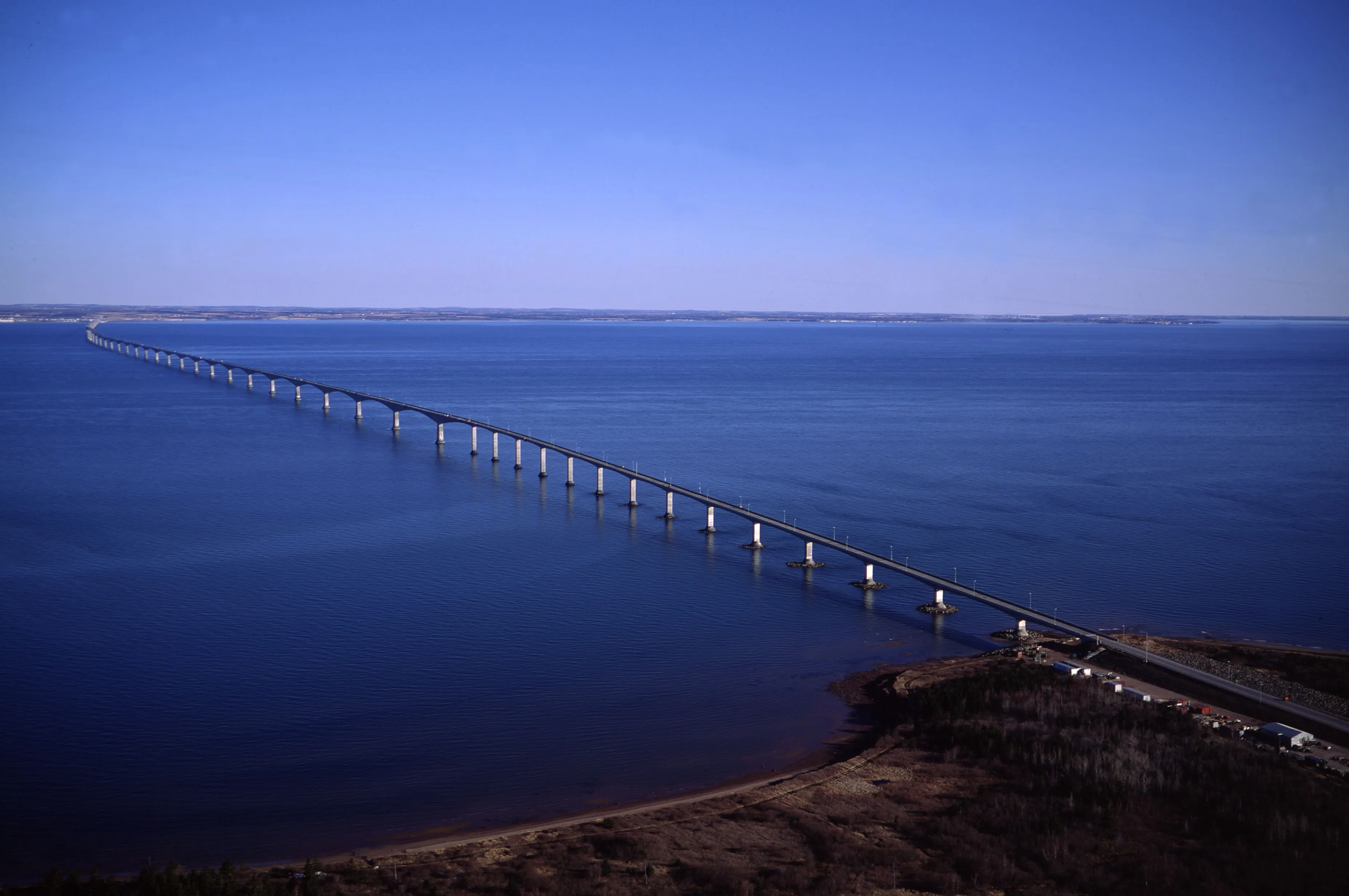Indonesia pulls back from Sunda Strait Bridge connecting Java and Sumatra
Indonesia appears to have shelved construction of a 30km bridge that would have connected the islands of Sumatra and Java – a US$23 billion project.
The structure -- a dream of Indonesia's political elite since the 1960s -- was to have three lanes of traffic in each direction, twin rail tracks and cabling for telecommunications and electricity.
But the Jakarta Post newspaper reported that recently elected President Joko Widodo had
November 11, 2014
Read time: 3 mins
Indonesia pulls back from Sunda Strait Bridge connecting Java and Sumatra.
Indonesia appears to have shelved construction of a 30km bridge that would have connected the islands of Sumatra and Java – a US$23 billion project.
The structure -- a dream of Indonesia's political elite since the 1960s -- was to have three lanes of traffic in each direction, twin rail tracks and cabling for telecommunications and electricity.
But the Jakarta Post newspaper reported that recently elected President Joko Widodo had dumped the megaproject, saying it would benefit only middle class Indonesians. Instead, other options, including buying more ferry ships and upgrading shipping freight ports, will be explored to better connect the two islands.
“Pak Jokowi (Widodo) has personally assessed the Sunda Strait Bridge project and he is concerned that it is not in line with his maritime-based development vision,” said Andrinof Chaniago, National Development Planning Minister.
Chaniago said less expensive solutions than the bridge had been brushed aside by the past federal government which had actively campaigned in this year’s election on the economic benefits of the Sunda Strait Bridge.
The proposed bridge would have been the biggest infrastructure project in the Master Plan for the Acceleration and Expansion of Indonesian Economic Development formulated by former president Susilo Bambang Yudhoyono. Even so, it was left in limbo due to divided opinion among his ministers, especially on how the project should be funded by public and private investors.
But Chaniago left the door open for a bridge in the future. “I am convinced that constructing the Sunda Strait Bridge is not an option for us, at least not in the next 10 to 15 years,” he said.
Earlier this year,3260 World Highways reported that the consortium Graha Banten Lampung Sejahtera, which was charged with completing a feasibility study, had reaffirmed its belief in the bridge. But the high cost of the project may never be covered solely from toll-fees. It may require other projects that will follow the bridge development, such as industrial estates, property projects and resorts in areas close to bridge access.
Graha Banten president Agung Prabowo said in 2012 that the lack of government support meant it was taking much longer to get permits to conduct a feasibility study. Even if support was there, such a megaproject would need at least three years for a study, the Jakarta Post reported at the time.
“We have been given two years, but we are confident in being able to complete the feasibility study within two years, as long as all elements involved in the project are working together with a strong commitment,” said Prabowo.
Indonesia appears to have shelved construction of a 30km bridge that would have connected the islands of Sumatra and Java – a US$23 billion project.
The structure -- a dream of Indonesia's political elite since the 1960s -- was to have three lanes of traffic in each direction, twin rail tracks and cabling for telecommunications and electricity.
But the Jakarta Post newspaper reported that recently elected President Joko Widodo had dumped the megaproject, saying it would benefit only middle class Indonesians. Instead, other options, including buying more ferry ships and upgrading shipping freight ports, will be explored to better connect the two islands.
“Pak Jokowi (Widodo) has personally assessed the Sunda Strait Bridge project and he is concerned that it is not in line with his maritime-based development vision,” said Andrinof Chaniago, National Development Planning Minister.
Chaniago said less expensive solutions than the bridge had been brushed aside by the past federal government which had actively campaigned in this year’s election on the economic benefits of the Sunda Strait Bridge.
The proposed bridge would have been the biggest infrastructure project in the Master Plan for the Acceleration and Expansion of Indonesian Economic Development formulated by former president Susilo Bambang Yudhoyono. Even so, it was left in limbo due to divided opinion among his ministers, especially on how the project should be funded by public and private investors.
But Chaniago left the door open for a bridge in the future. “I am convinced that constructing the Sunda Strait Bridge is not an option for us, at least not in the next 10 to 15 years,” he said.
Earlier this year,
Graha Banten president Agung Prabowo said in 2012 that the lack of government support meant it was taking much longer to get permits to conduct a feasibility study. Even if support was there, such a megaproject would need at least three years for a study, the Jakarta Post reported at the time.
“We have been given two years, but we are confident in being able to complete the feasibility study within two years, as long as all elements involved in the project are working together with a strong commitment,” said Prabowo.







